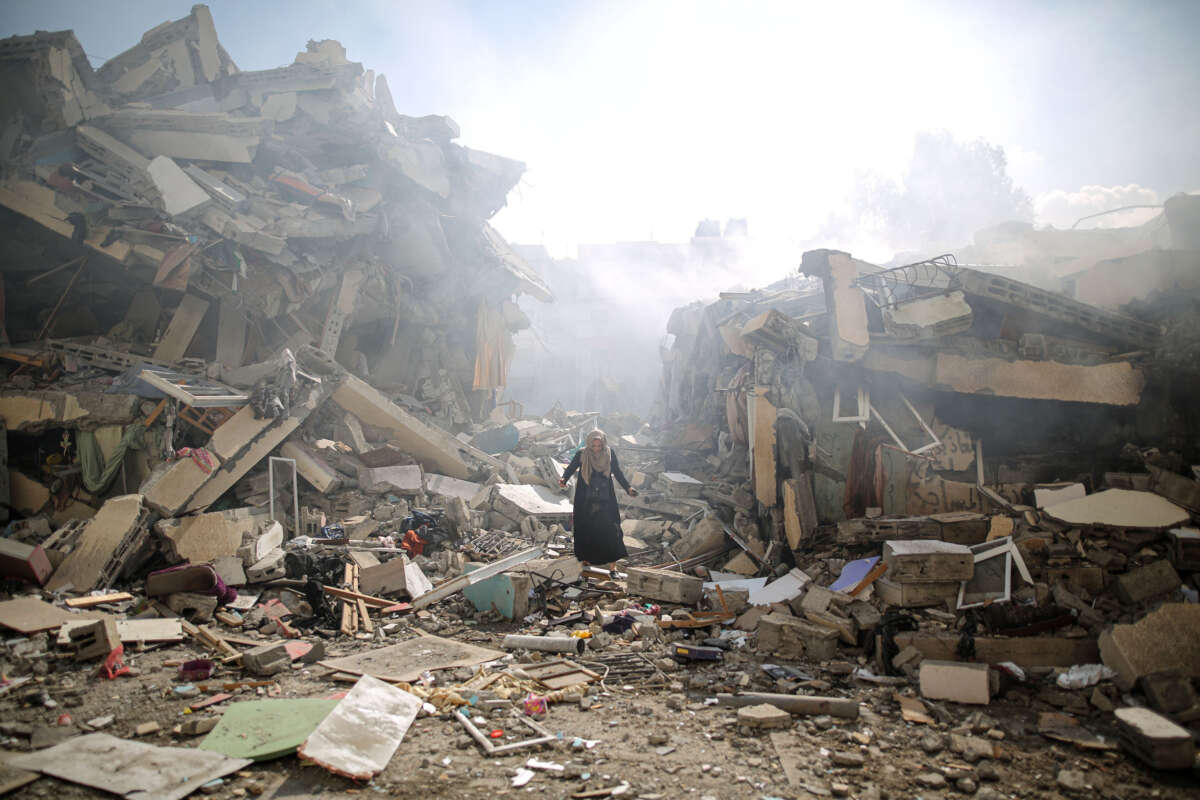The severity of the humanitarian crisis in Gaza that is unfolding as a result of Israel’s siege of the area is worse than anything international disaster relief organization Oxfam has seen in its 80-year history, the leader of the British arm of the group has said.
“Never in Oxfam’s history have we seen a humanitarian crisis like the one in Gaza,” wrote Oxfam GB CEO Dhananjayan Sriskandarajah in an op-ed in The Guardian on Thursday.
Sriskandarajah called on world leaders like President Joe Biden and UK Prime Minister Rishi Sunak to demand an immediate ceasefire and for Israel to stop its blockade of humanitarian aid in Gaza, warning of the extremely dire situation in the region. While Oxfam has been providing humanitarian relief to people in war-torn countries for decades, including in Somalia, Yemen and Syria — each facing horrific crises on their own — the Gaza crisis is “unprecedented,” he wrote.
“Elsewhere, my brave colleagues would be running relief services; in Gaza today they are running for their lives. Elsewhere, we would be in constant touch with them; in Gaza today their phones are running out of battery because electricity has been cut off. Elsewhere, we would share our location data with combatants to keep staff and civilians safe; in Gaza today, no one is safe,” Sriskandarajah wrote.
“The humanitarian rulebook has been thrown out, and polite pleas from politicians to ‘minimise civilian fatalities’ are naive at best, and at worst seem blind to the unimaginable horrors already taking place in Gaza,” he continued.
The chilling op-ed offers a small glimpse into the catastrophic reality on the ground in Gaza, where Israel has cut off access to the outside world like internet and electricity while simultaneously killing and injuring journalists — stoking fears of a media blackout in terms of on-the-ground reports on the conditions in Gaza.
Sriskandarajah’s warning echoes what Gazans have managed to broadcast about the siege: that no one is safe, not journalists, not those who heeded Israeli forces’ warning to flee, not refugees in camps, not people seeking or giving care in hospitals, not children — not anyone.
Even as Israel continues shelling Gaza with thousands of bombs and choking out Gazans from vital resources, including food and water, Israel’s defense minister told soldiers on Thursday to be prepared for a ground invasion at any moment in the Gaza Strip.
That warning comes as all 2 million people in Gaza are already at risk of dying due to a lack of water, as Sriskandarajah said. The UN has estimated that Gazans currently only have access to an average of three liters of water a day — a far cry from the 50 to 100 liters per day that humans require for basic needs.
“More than 2 million people, half of them children, are being denied one of life’s essentials; they are forced to drink dirty water or go without. Without working toilets and with waste accumulating in the streets, Gaza risks becoming a breeding ground for cholera and other deadly diseases,” he said. “Palestinians in Gaza have literally nowhere to go, and no one seems willing or able to help as families face death by dehydration and disease.”
